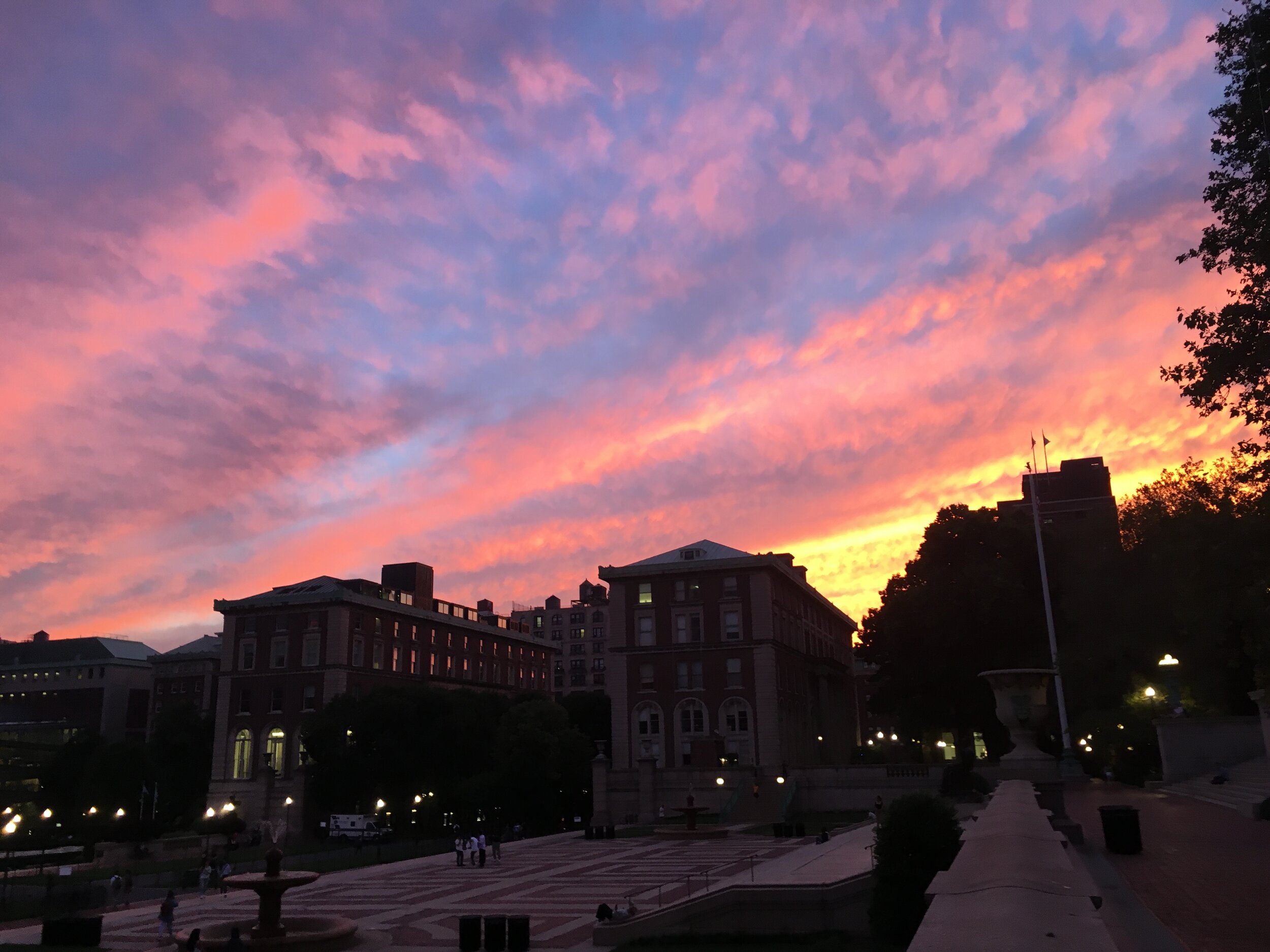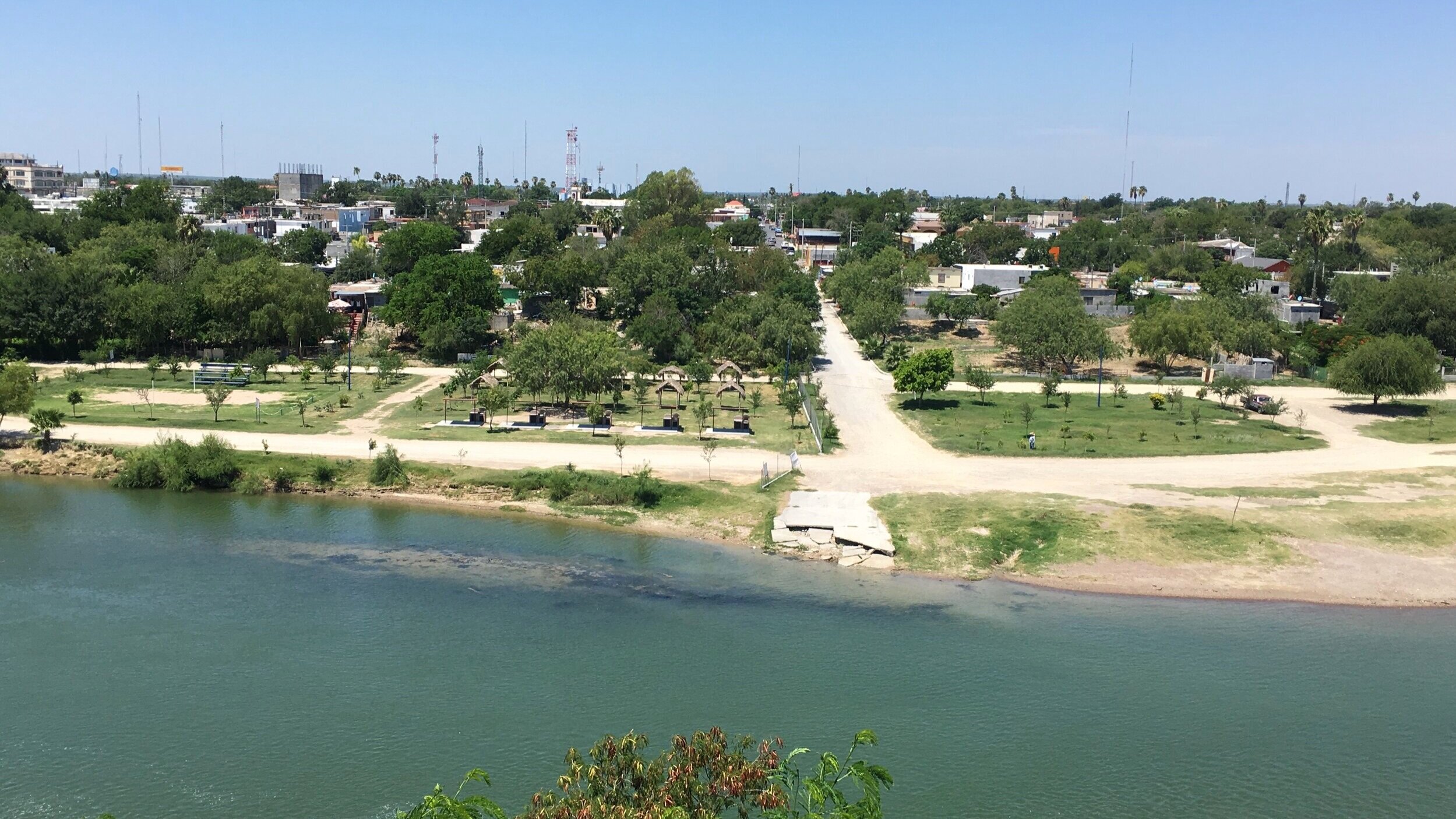In my courses, which span introductory and advanced sociology, students rigorously engage with a diverse range of theoretical and empirical texts and test their relevance for making sense of the social world around us.

Columbia University, New York, New York, 2019 (PC: K Griesbach)
My Teaching Philosophy
As a sociology instructor, I facilitate a classroom environment for examining social problems and uncovering broad patterns of inequality, prioritizing inclusivity in both my course design and teaching practice. Incorporating rigorous analysis of sociological texts with concrete cases in the world, my courses are a setting for students to think critically across texts and experiences and flex their sociological imaginations. My classroom work matches my approach to research: to find the best methodologies and theories for tackling a given social problem. I have honed three strategies to improve student learning and foster critical thinking about the world within and beyond the classroom: 1) adapting learning activities to the teaching context; 2) engaging students in the learning process by incorporating a wide range of contemporary examples into my teaching; and 3) scaffolding activities and assignments to build skills and reward improvement.

New York, New York, 2013 (PC: K Griesbach)
Recent Courses
What’s in a Gig? Technology, Identity, and the Future of Work
Instructor of Record. Fall 2024. UT Austin.
This signature course explores experiences and understandings of work today. It examines how technologies are altering work experiences and how work and identity are intermeshed in our daily life and our imagined futures. The course as a whole will offer a lens for analyzing the world of work, along with the relationship between work and the rest of our lives—including temporal and spatial boundaries between work and life. It may serve as a springboard for you to examine such questions as: What is the relationship between meaning and money, work time and leisure time? (or, do I want to work to live or live to work?) How do historical and relatively fixed work temporalities and geographies compare to new structures of work? (or, what is my Uber driver’s life like, and why is it so different from my grandfather’s experience as a mail carrier?) What do changing structures of work mean for our collective future, in and beyond work? (or will robots take all of our jobs? And if so, what should we do about it?)
Introduction to the Study of Society
Instructor of Record. Fall 2022, Spring 2023, Fall 2023. UT Austin.
This course will introduce you to how sociologists think and some of the methods they use to research the social world. Thinking sociologically means understanding ourselves and others as affected by the cultures and social forces of our time, rather than as free-floating individuals. It means uncovering social patterns, questioning the inevitability of much of what we observe in the world around us, and thinking about when and how social change happens as well as when and how things stay the same.
We will cover major sociological themes such as the social construction of reality, the relationship between individual agency and social structure, and the causes and consequences of social inequality. The course will cover, among other topics, education, work, family, race and ethnicity, class, gender, sexuality, and time and space in social experience. The syllabus will sample some “classic” and many contemporary book chapters and articles. We will examine the different methodological approaches scholars have taken, and not taken, to address pressing questions, and the frameworks they have used to make sense of their findings.
Work, Life, Time and Space: From the Factory to the Gig Economy
Instructor of Record. Fall 2019. Columbia University.
This 4-credit class explores experiences and perspectives of work, life, and the often blurred boundary between them. We focus on how work is situated in, and shaped through, space and time. We begin with a set of theoretical and historical texts, and then turn to case studies of work and life. The goal is to understand and make sense of how work, and its relationship to home, has evolved historically and how it is experienced today. The theories of space, time, and work which we begin with provide frameworks for making sense of the varied cases we explore. The course culminates in each student’s analysis of a case of their choosing, for which they conduct small-scale sociological fieldwork and draw on the texts in class to make sense of their findings.
Social Theory
Instructor of Record. Summers 2018 and 2020. Columbia University.
Social theory is what we use to explain why things happen (or don’t happen). In other words, it helps us make sense of how the world works. This course is designed to provide students with a general overview of several of the most influential “classical” sociological theories. These thinkers are some of the foundations on which sociologists today develop and apply theory to address pressing social questions and make sense of their data. The theorists we read will provide us with a set of lenses for analyzing the world. For example, we can apply them to answer questions such as: why is there so much inequality in our society, and why is it patterned in certain ways? What brings and holds groups of people together, and what tears them apart? How can we understand the still-unfolding effects of COVID-19 on different groups across society? What might the future of work look like? We will try on the distinct sets of lenses each theorist offers by carefully reading their work, discussing it, and applying their frameworks to contemporary social problems.

South Padre Island Causeway, Texas. (PC: K Griesbach)
TESTIMONIALS
“Professor Griesbach organized both the syllabus and the classes in a way that made it both possible and exciting for us to tackle a question like “what is space?” in a two-hour seminar. She struck a great balance between heady theoretical texts about what it means to work and more grounded readings that looked into, for example, what it’s like to work at Walmart. Texts like these made each other more accessible and engaging, and the way Professor Griesbach organized our discussions allowed us both to cover the larger themes and dive into the parts we were most drawn to. Education can often feel like a passive process, but by making use of our pre-class discussion posts and letting students lead some discussions, Professor Griesbach made us active participants in the learning process.” ~Amy, former Work, Life, Time and Space student
Read more here.
"I learned more from Kathleen than almost any other prof at Columbia. Her enthusiasm, passion and incredible work in the field made me want to become a sociologist. Now I apply that sociological lens to my work with clients like the World Bank Group and IFC. I've even tried to hire her- twice! or was it 3 times? She rocks!" ~Juliette Powell, former Social Theory student
“Dr. Griesbach made herself open and available to discuss the progress on our projects throughout the semester. It was clear that she was actively interested and invested in each student’s research interests and the eventual project they chose. She also established a sequence of assignments to help us successfully complete the research project by starting small and slowly building up from there. I found this particularly helpful given, as an undergraduate, my lack of experience performing sociological research in the field.” ~Brandon, former Work, Life, Time and Space student
Read more here.
“While this course was a required class for the sociology major, Dr. Griesbach delivered the class content with enthusiasm and breadth of knowledge. Utilizing PowerPoint slides, visual aids, strong examples, and clear verbal communication of the material--since the first day of class--it was clear that she put time and effort into class preparation. She facilitated class discussions via prompts, breakout sections between students, and allowed for a natural flow of conversation regarding the material. She was willing to answer all questions and did so kindly and with mastery of the content…Every assignment was followed up with clear comments, questions, and feedback…Dr. Griesbach truly read each word and thoughtfully and fairly responded and graded the work.” ~Lillian, former Social Theory student
“While I was somewhat unsure about [my] topic given its off-kilter nature, Kathleen encouraged me to continue down this route and met with me on numerous occasions to flesh out my ideas and provide me with interesting resources. This research culminated in a successful project on which I eventually expanded in my senior thesis, for which I received departmental honors. I would not have explored this topic were it not for Kathleen’s support, so I am overwhelmingly thankful both for her encouragement throughout my research and for her incredible facilitation of our seminar. ” ~Nick, former Work, Life, Time and Space student
Read more here.
“While I have worked with many educators who were knowledgeable and good-natured, Kathleen also had a sincere enthusiasm for the subjects and a talent for fostering it in others. She was always willing to delve into impassioned tangents and could turn what felt like grasping at ideas into concrete connections to the substance of the class, always encouraging you to explore more. Her confidence in the material and excitement for learning made it accessible then, and continues to inspire me to this day.” ~Jordan, former The Social World (Intro to Sociology) student

Roma, Texas looking toward Ciudad Miguel Alemán, Mexico, 2017 (PC: Kathleen Griesbach)